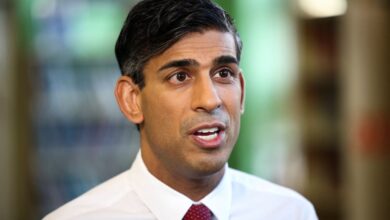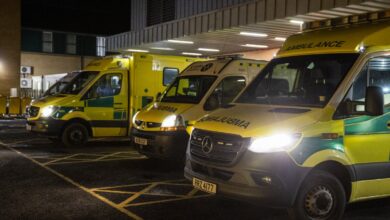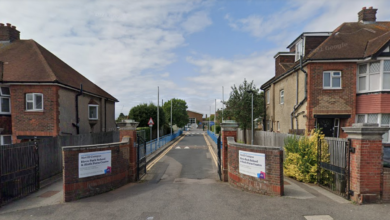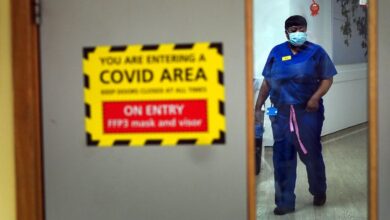NHS waiting list hits record high as A&E performance sinks to new low

A record high of 7 million patients are waiting for NHS care as A&E performance sinks to a new low, NHS data reveals.
A total of 7.0 million people in England were waiting to start treatment at the end of August, according to the new figures.
This is up from 6.8 million in July and is the highest number since records began in August 2007.
Of those waiting 387,257 people had been waiting more than 52 weeks to start treatment, up from 377,689 at the end of July.
The Government and NHS England have set the ambition of eliminating all waits of more than a year by March 2025.
Commenting on the latest monthly NHS performance data, Siva Anandaciva, chief analyst at The King’s Fund, said: “This winter, typical seasonal pressures on NHS services will be amplified by Covid-19 and a cost-of-living crisis that could impact on people’s physical and mental health.
“The government must acknowledge stark reality of the situation. If the current workforce and spending plans are the most the government is willing to offer, then there is little chance the health and care secretary’s Plan for Patients will be delivered. And sadly, it will be the public and patients who will suffer for those broken promises.”
New A&E shows that 32,776 people waited more than 12 hours in September, up from 28,756 in August and the highest number in records going back to August 2010.
However, this is only a small proportion of those waiting more than 12 hours in A&E overall as public data does not count the time patients wait from when they first arrive.
Performance against the national target to see 95 per cent of patients within four hours hit a new low with just 56.9 per cent seen within this time in September.
The average response time in September for ambulances in England dealing with the most urgent incidents, defined as calls from people with life-threatening illnesses or injuries, was nine minutes and 19 seconds, NHS England figures show.
This is up from nine minutes and eight seconds in August, though below the record longest average response time for this category of nine minutes and 35 seconds, which was reached in July.
The target standard response time for urgent incidents is seven minutes.
Ambulances in England took an average of 47 minutes and 59 seconds in September to respond to emergency calls such as burns, epilepsy and strokes.
Meanwhile, NHS England data showed in September more than 13,000 patients a day who were deemed ready to be discharged, were stuck in hospital beds.
Professor Sir Stephen Powis, NHS national medical director, said: “Despite huge pressures on the NHS this summer, the incredible work of colleagues across the country meant that in August we delivered more potentially life-saving cancer checks than ever before, and cut 18 month waits by 60% over the last year.
“This was despite continued pressure from Covid patients in hospital, which has now risen to more than double the numbers seen in August, and more of the most serious ambulance callouts than before the pandemic.
“As we prepare for a difficult winter ahead, it is vital that people protect themselves by coming forward for Covid and flu vaccinations if they are eligible as soon as they can – with bookings opening tomorrow to everyone aged 50 and over.”





